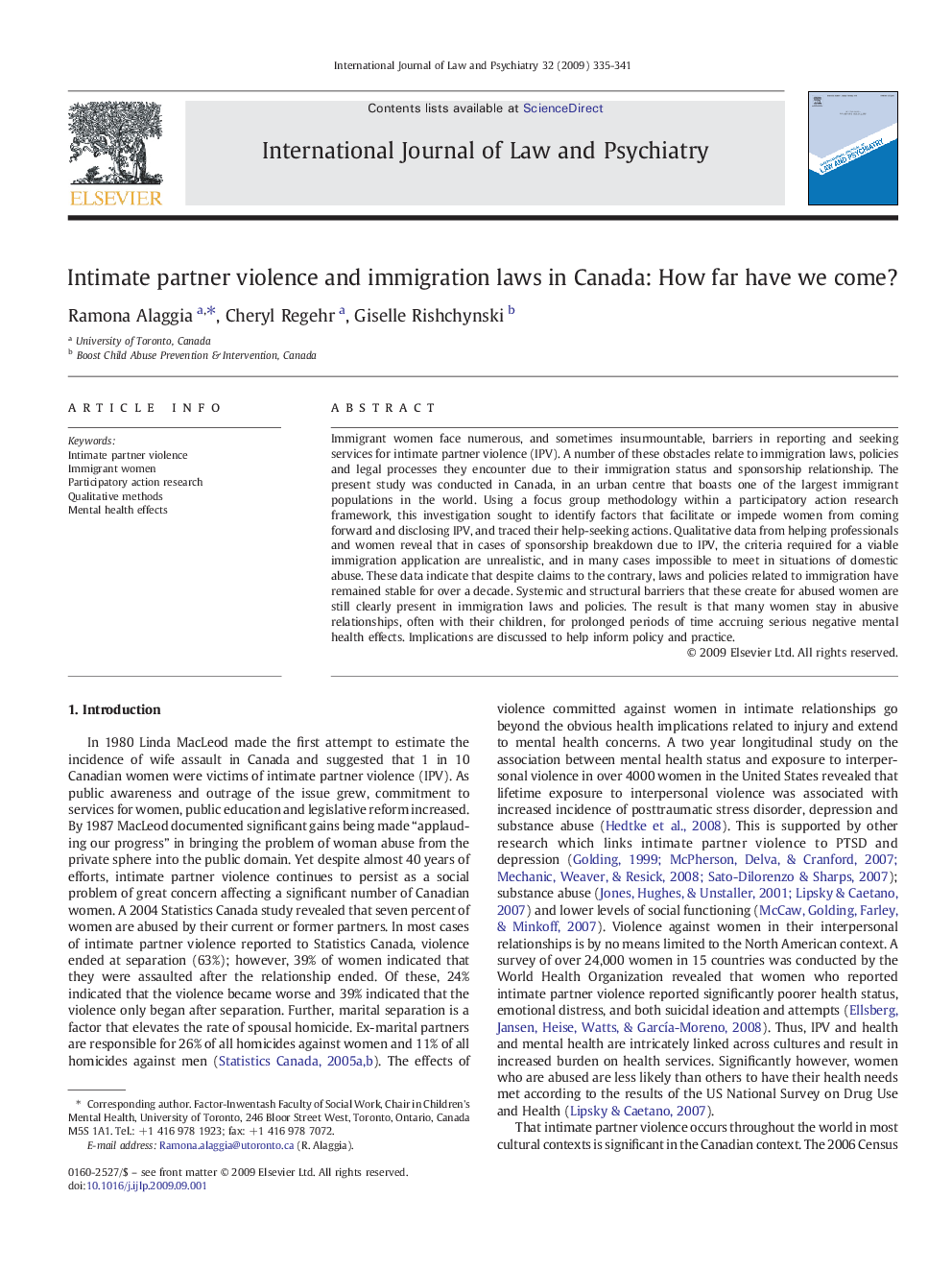| Article ID | Journal | Published Year | Pages | File Type |
|---|---|---|---|---|
| 100907 | International Journal of Law and Psychiatry | 2009 | 7 Pages |
Immigrant women face numerous, and sometimes insurmountable, barriers in reporting and seeking services for intimate partner violence (IPV). A number of these obstacles relate to immigration laws, policies and legal processes they encounter due to their immigration status and sponsorship relationship. The present study was conducted in Canada, in an urban centre that boasts one of the largest immigrant populations in the world. Using a focus group methodology within a participatory action research framework, this investigation sought to identify factors that facilitate or impede women from coming forward and disclosing IPV, and traced their help-seeking actions. Qualitative data from helping professionals and women reveal that in cases of sponsorship breakdown due to IPV, the criteria required for a viable immigration application are unrealistic, and in many cases impossible to meet in situations of domestic abuse. These data indicate that despite claims to the contrary, laws and policies related to immigration have remained stable for over a decade. Systemic and structural barriers that these create for abused women are still clearly present in immigration laws and policies. The result is that many women stay in abusive relationships, often with their children, for prolonged periods of time accruing serious negative mental health effects. Implications are discussed to help inform policy and practice.
